Circle of Innovation
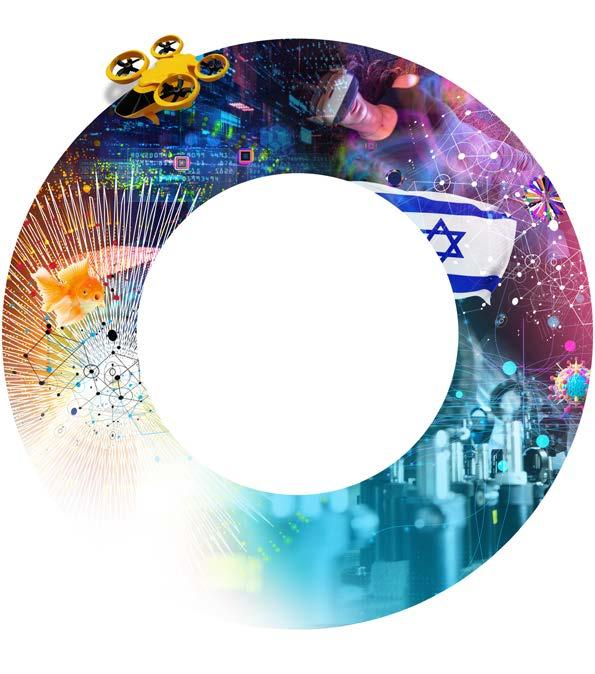
Tel Aviv University
Annual Report 2023
CONTENTS
Reports | pp. 2-21
Chairwoman's Greetings | p. 22
President's Greetings | p. 23
Global Campaign | pp. 24-25
Officers | p. 26
Distinctions | p. 27
Projects | pp. 28-29
Reports, cont. | pp. 30-36
Whether it’s Israel at 75, our rapidly changing world, or Tel Aviv University’s fast-paced campus, every advance in science and scholarship creates new links in the circle of innovation.
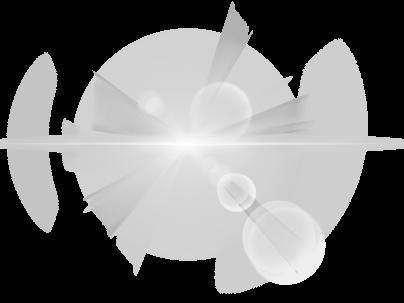
1
CONVERGENCE
Art in dialogue
Dr. Tamar Mayer (Arts) initiated and curated a unique exhibition at the Genia Schreiber University Art Gallery based on a dialogue between artists and researchers in a range of scientific fields. Five contemporary Israeli artists visited TAU research labs and were inspired to create installations addressing questions of visual attention, perspective-shifts, invisibility, dreamscapes, and the relationship between the visual and auditory. Open to the public for six months, the exhibition encourages visitors to question the structures, concepts, and blind-spots of human mindedness.
AI and architecture
Bringing together architecture and computer science, Prof. Eran Neuman (Arts) of the David Azrieli School of Architecture, and Prof. Lior Wolf (Exact Sciences) of the Blavatnik School of Computer Science are developing an artificial intelligence (AI) deep learning mechanism for deciphering historical architectural drawings. Thousands of local architectural drawings will become part of a new visual database, categorized by type of project, materials used, and other features, and including reference to their place in global architectural history. Architecture is now entering the world of Big Data with this first-ever creation of an AI-based visual database.

2
Where Music Meets Science
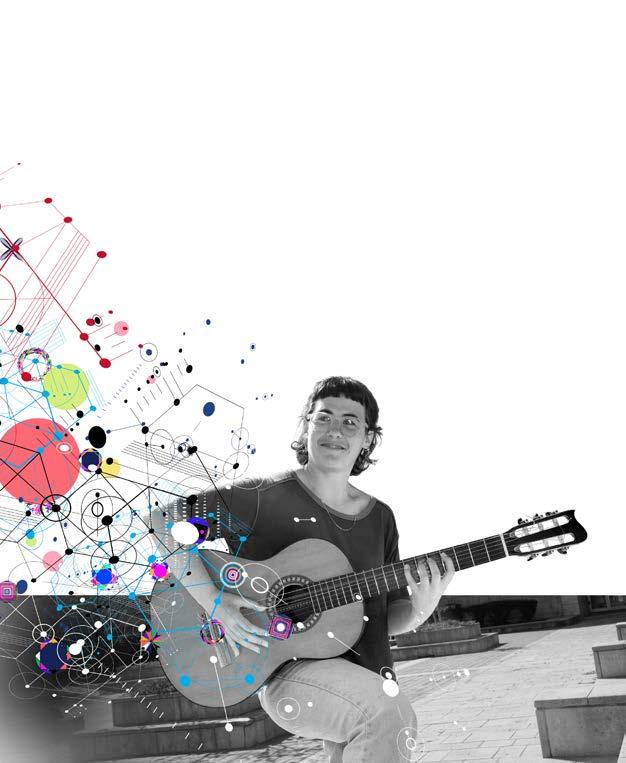
Interdisciplinary collaboration went up a notch when Dr. Ofer Gazit (Arts) of the Buchmann-Mehta School of Music was approached by his musicology student, Gad Asher, who is also a biochemistry professor at the Weizmann Institute of Science, to “reposition music among the sciences.” Their resulting project, “Quadrivium,” presented scientific problems through music in an aesthetic and accessible way by bringing together composers from TAU and researchers in physics, chemistry, molecular biology, and neuroscience from the Weizmann Institute.
“Each composer-scientist team explored data sets, technological tools, and methodological correlations between music and science to help them ‘hear anew’ familiar problems and develop new forms of musical structure and performance,” explains Dr. Gazit. Among the questions considered were the rhythmic properties of cells, the sonic resonances of bosons, the role of sound in spatial and temporal perception, and the synchronization of metal nanoparticles. The compositions that emerged from this project were presented in a symposium and multimedia concert.
Pictured: Noga Nakash, a 2022 alumna of the BuchmannMehta School, was one of the composers who participated in the project. Working with a scientist studying proteins, she combined electronic music with improvisational live music to mimic the body’s biological processes.
Tel Aviv University Annual Report 2023
3
From Talmud to stage
Dr. Yair Lipshitz (Arts), lecturer in the Department of Theater Arts and Head of TAU’s Cymbalista Jewish Heritage Center, brings together Talmud study and theatrical performance in his research, with funding from the Israeli Science Foundation. He reasons that since Talmud was originally part of oral culture, its transmission was a live event involving performative elements. In encounters between theater students, artists and students of Talmud, he is exploring how these original performative elements can be unlocked and how they were expressed in modern theater.
New dimensions of knowledge for future doctors
Diversifying medical studies, TAU is introducing two new joint degrees. In a program coordinated by Prof. Irit Gat-Viks (Life Sciences) and Prof. Elhanan Borenstein (Computer Science/Medicine), Head of the Edmond J. Safra Center for Bioinformatics, students complete a BSc in Computer Science and Life Sciences with a specialization in Bioinformatics, followed by studies toward an MD. Another new track, coordinated by Prof. Uri Nevo (Engineering), combines medicine with engineering, providing a BSc in Biomedical Engineering followed by an MD. Dr. Sharon Weiss (Medicine) is the coordinator for both new programs that are training doctors to become leaders in biomedical technologies.
Sliding into new territory
Dr. Moshe Ben Shalom (Exact Sciences) leads a research team bringing together physicists and chemists from TAU and the Weizmann Institute of Science. They have discovered twodimensional crystals that can control distinct steps of electric potential by sliding atomically thin layers against each other. The resulting ultra-thin electrical switches are highly coveted for their potential use in information technology and for a variety of electro- and opto-mechanical applications. The recently patented discovery is being developed by SlideTro Ltd., a startup established with Ramot, TAU’s technology transfer arm.
If you build it, they will come
The Sourasky Central Library Digital Humanities Lab is the culmination of a multiyear effort led by library director Dr. Naama Scheftelowitz to bring library services deeper into the digital age. The lab is equipped with a variety of tools –proprietary and open source, online and offline – that enable user-friendly entry into the world of digital humanities. It offers advanced scanners, state-of-the-art OCR (optical character recognition) software, and open-source GIS (geographic information system). A comprehensive survey of faculty needs led to the selection of tools and equipment, and the lab is open to all for free use.
4
CONVERGENCE
Climate crisis – action or denial?
Involved in climate education on campus, Prof. Ruth Ronen (Humanities) is researching why people react with skepticism, denial, anxiety or indifference, to today’s most fatal threat to human survival. Proposing that forms of climate denial reflect fundamental positions toward knowledge, such as distancing oneself from a problem or “not wanting to know,” her project, Climate Crisis and Climate Denial, seeks to understand these reactions from a philosophical and psychoanalytic perspective and explain the different positions people take and why. Ronen is also on the steering committee of PlanNet Zero, the university climate crisis initiative.
Nano in service of cleaner water
Dr. Ines Zucker (Exact Sciences/Engineering) of the Porter School of the Environment and Earth Sciences and the Center for Nanoscience and Nanotechnology, is a leader in nanoenabled methods of water decontamination. In response to concern about the amount of micro- and nano-plastics in our water supplies, Dr. Zucker’s Lab assesses plastic toxicity, with the aim of reducing the potential damage of plastics in the future. Her ultimate goal is to rehabilitate contaminated yet vital water sources in infrastructure-deficient regions.
Law in the digital world
The newly inaugurated Chief Justice Meir Shamgar Center for Digital Law and Innovation provides an interdisciplinary framework for dialogue among policy makers, technology and industry leaders, researchers, students and the general public. It will advance research on the impact of technology on individuals, business and society, with the aim of designing relevant legal policies and technological tools. The Center also aims to perpetuate the legacy of the late Chief Justice Meir Shamgar, a preeminent figure of Israel’s judiciary who staunchly believed in the central role of the legal system for protecting liberal democracy and human rights.
How do stem cells select their identity?
How does a stem cell know into what kind of cell to transform itself -- heart, liver, bone? This is one of biology’s biggest mysteries. With an ERC grant, the lab of former Scheinberg Family Fellow Dr. Omri Wurtzel (Life Sciences) is working on solving it. He discovered that stem cells select their identity by using chemical modifications that promote the production of distinct cell types. The Wurtzel lab has found that such chemical modifications regulate the production of neurons, the fundamental unit of the brain. These important findings were recently published in the EMBO (European Molecular Biology Organization) Journal.
Tel Aviv University Annual Report 2023
5
Controlling of Light the Power
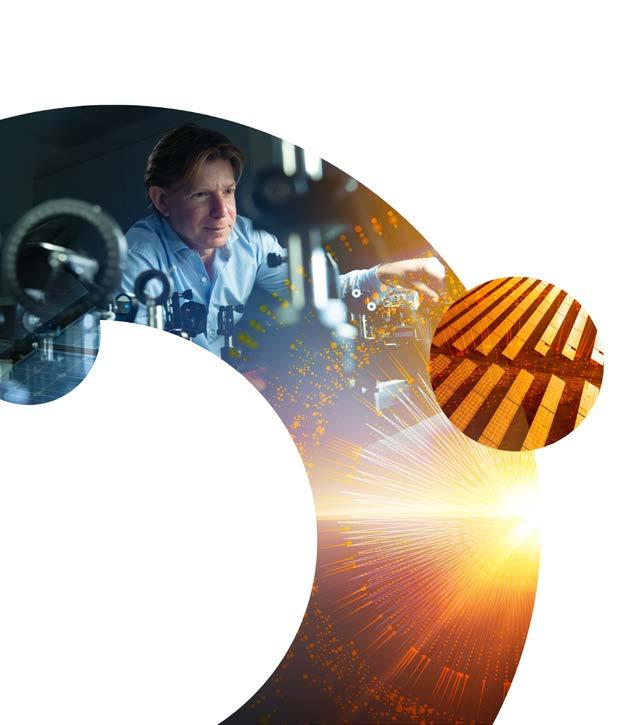
CONVERGENCE 6
At the juncture of chemistry, quantum physics, optics, and material science, Dr. Tal Schwartz (Exact Sciences), pictured, and his team have created an ultra-fast imaging system that enables them to study and fine-tune “polaritons” – novel particles created from "mixing" light and matter.
Using this system, the team was able to follow the motion of the polaritons and to reveal, for the first time, their special behavior: the more light they contain, the faster and more efficient they become. The research, published in Nature Materials, “may enable us to overcome considerable technological hurdles in converting light into electric energy,” said Schwartz, “leading to more efficient harvesting of solar energy as well as to novel optoelectronic devices for optical communication and signal processing.
Regenerating lost bone
In a groundbreaking study at TAU’s Goldschleger School of Dental Medicine, researchers have developed a hydrogel that induces bone regeneration by mimicking the bone’s natural environment, stimulating bone growth, and reactivating the immune system to accelerate the healing process. The study was led by Prof. Lihi Adler-Abramovich, Dr. Michal Halperin-Sternfeld, Prof. Izhak Binderman, and Prof. Rachel Sarig (all from Medicine) in collaboration with researchers from the University of Michigan in Ann Arbor. The paper was published in the Journal of Clinical Periodontology
Emotion and education
Dr. Tony Gutentag (Medicine) is a new faculty member with post-doc training in psychology and educational psychology from Hebrew University, University of Toronto, and University of Melbourne. Looking at social and emotional aspects in medical education, she explores questions such as how to instill in doctors greater empathy toward patients, or prevent burnout among healthcare professionals. Since emotional regulation is critical to health carers’ wellbeing, which in turn reflects on quality of care, she is developing interventions for improving management of emotions. Her interdisciplinary research combines psychology, organizational behavior, education, and psychometrics.

Tel Aviv University Annual Report 2023
7
Cancer’s evasive tactics
In his research into why cancer may recur after successful immunotherapy treatment, Dr. Yaron Carmi (Medicine) has made a remarkable discovery. When attacked by immune cells, the tumor cells form temporary cell-in-cell structures, impenetrable to immune system toxins. The outer cell may die, but the inner cell stays protected and when immune toxins are no longer present, it reemerges as a live tumor cell. This novel theoretical concept opens new avenues for the development of next generation immunotherapies.
Is your car invading your privacy?
With their new, advanced driving assistance software, motor vehicles are becoming digital platforms that collect huge amounts of data worldwide. Dr. Alex Gekker (Social Sciences), in collaboration with German colleague Dr. Sam Hind, reasons that, as with data titans such as Facebook, Amazon, or Google, motor vehicles may now become the next purveyors of personal information as a valuable product. Research raises a red flag, Gekker says, thereby raising our awareness of the increasing intrusion into our personal information via a new platform: the car.
Drugs where you’d least expect

Contrary to the assumption that belonging to a closed Jewish Ultra-Orthodox community provides protection against drug abuse, two researchers show it is a growing phenomenon. Prof. Belle Bavriel-Fried and Dr. Yael Itzhaki-Braun (both from Social Work), who study addiction and closed communities respectively, show that community conformism creates tension that can lead non-conformists and people with special needs to turn to drugs. This is aggravated by the fact that in the Ultra-Orthodox world there is little or no knowledge about drugs, their dangers, or who to turn to for help, suggesting paths for future social interventions.
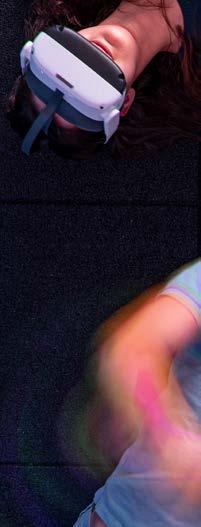
CONVERGENCE 8
The Center for Innovation in Teaching and Learning has developed and modified over 400 TAU courses – more than any other university in the world. The rise of VR and digital learning technology has allowed the Center to create a variety of more active, more accessible, and more effective courses. Among these are a number of publicly available online courses hosted by prestigious course provider edX and a full online MBA produced in partnership with Wiley, one of the foremost academic publishers internationally. However, “we do not focus solely on digital courses,” says Prof. Liat Kishon-Rabin (Medicine), pictured, who is Dean of Innovation in Teaching and Learning. “We also work with pedagogical leaders in each university department to make face-to-face courses more engaging for students. We want classes to be worth the trip to campus.”
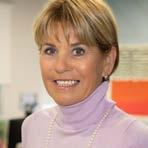
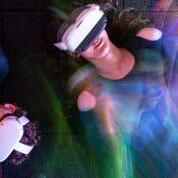
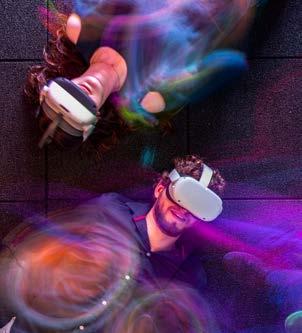
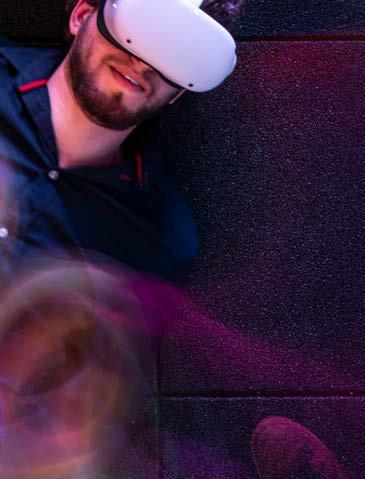
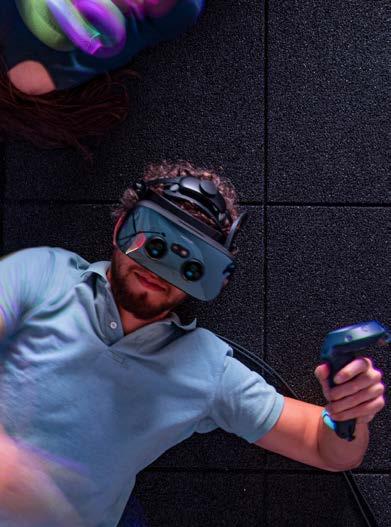
Teaching: OUT with the Old
Tel Aviv University Annual Report 2023
9
Building Responsible Consumerism, One Housing Complex at a Time







A startup founded by TAU alumni, which received $30 million in funding this year, is creating a future-friendly way of accessing household appliances. TAU environmental studies MSc alumna Yael Shemer and architecture BA alumnus Yishai Lehavi (pictured) combined their passions to create TULU, a startup that reduces consumption by offering underused appliances for rental in large apartment buildings. Many appliances such as vacuum cleaners, cake mixers and printers are usually bought individually but used only sporadically – a phenomenon termed the “buying economy," which means production and its environmental consequences far outweigh actual usage. Shemer and Lehavi hope to curb this problem by pioneering a “usage economy” based on maximizing product use and physical space through product sharing systems such as TULU’s. Since launching in 2019, TULU has expanded from one building in Tel Aviv to hundreds of buildings in 22 cities, and has partnered with well-known real estate companies and major appliance manufacturers. Each building’s lobby is fitted with a high-tech vending machine from which residents can rent products using an app on their phones. Says Yael Shemer, "Today, I'm more inspired than ever to help advance technologies mitigating climate change and promoting responsible consumerism."


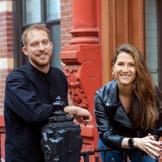

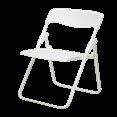



CLOUT
10
Living in a visual world
The Art History Department, together with TAU’s Career Center, is offering a first in Israel – an internship project headed by Dr. Tamar Cholcman (Arts) introducing students to Public Art History. By providing the tools and skills key to professions from art trade and archives, to management of cultural resources for museums, galleries, and more, the project prepares students for a variety of jobs and careers.
Quantum communication from space
TAU’s Center for Quantum Science and Technology, headed by TAU Pro-Rector Prof. Yaron Oz (Exact Sciences), has built the first ground station in Israel – and among a few worldwide –for optical and quantum communication with satellites. The station, which includes an observatory dome and powerful telescope, will test hack-proof communication protocols with a TAU nanosatellite launched recently and built at the Center for Nanosatellites and New Space, headed by Prof. Meir Ariel (Engineering). The shoe-boxed sized satellite is the third one sent up by TAU in less than two years.
Fueling a better future
Prof. Brian Rosen (Engineering) recently won a large grant from the Israel Ministry of Energy to lead a binational consortium of Israeli and Moroccan researchers. Their aim is to develop materials that improve the durability of fuel cells and electrolyzers, systems that convert between chemical energy (hydrogen and oxygen) and electricity. Hydrogen is an energy carrier that can be stored and used to power any hydrogen fuel cell-based electric application, from trains and buses to data centers. The research aims to bring us closer to a cleaner "hydrogen economy."
Generating interest in regenerative medicine
Twenty-five novel research projects competed for the first seven grants being allocated by the new, interdisciplinary Sagol Center for Regenerative Medicine, headed by TAU’s Prof. Benjamin Dekel (Medicine), a specialist in stem cell biology and regenerative medicine at Sheba Medical Center, Tel Hashomer. The research grants will support collaborations between TAU scientists, practicing physicians, and PhD candidates in both basic and clinical research in the field. The Center also kicked off a unique track at the TAU School of Medicine’s MD-PhD program in cooperation with research labs all over campus in regenerative medicine, and the Center will co-host its first international conference with the Israel Stem Cell Society in January 2024.
Tel Aviv University Annual Report 2023
11

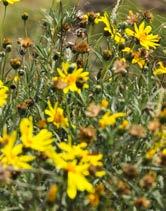


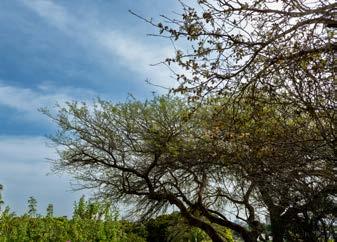

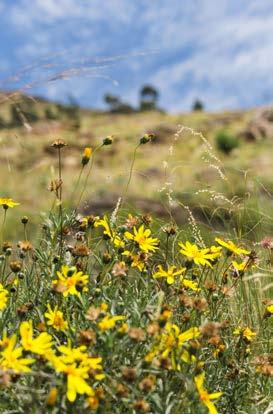


12
Tracking Israel’s Nature

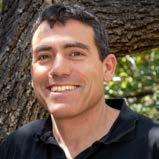



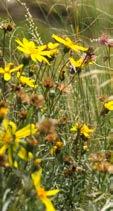
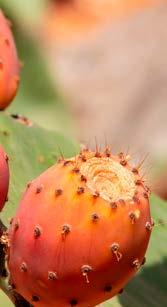
How have Israel’s landscape, plants and animals changed over time? How have they been affected by climate change and urban development – and how will they be managed in the future? A partnership between TAU’s Steinhardt Museum of Natural History, JNF-KKL, the Ministry of Environmental Protection, and the Israel Nature and Parks Authority forms (“the tapestry”), Israel’s National Ecosystem Assessment Program. Since 2006, the project, directed by Dr. (pictured) at the Steinhardt Museum, has put out a yearly State of Nature Report assessing local flora and fauna populations compared to recent years and decades ago. The report also includes updated maps of natural and developed landscapes, and updates on potential threats including fires, industrial pollution, and light pollution. More recently, there is a whole chapter dedicated to climate change.
Hamaarag works with experts in different fields to properly gather and report data. It also works with numerous governmental and research agencies including the Arava Institute, the Israel Water Authority, the Ministry of Water and Construction, and the Central Bureau of Statistics. Additionally, city planners, government bodies, NGOs and educators use the Report’s maps, which are the most updated and detailed available for purposes ranging from building planning to grade school nature classes.
Tel Aviv University Annual Report 2023 13
The bones of the matter
Working with the Tel Aviv Sourasky Medical Center, researchers
Prof. Amal Khoury and Dr. Amir Sternheim (both from Medicine) and Prof. Zohar Yosibash (Engineering) head the new Center for Interdisciplinary Innovation in Bone Healthcare. The Center brings together medical and engineering expertise to measure real-time, biomechanical changes in bone strength, important for predicting fracture risk, treating bone metastasis, and customizing patient-specific solutions. The Center works with leading international research institutions and collaborates with industry to accelerate the translation of its research into commercial solutions.
Does investing for good do any good?
Prof. Sharon Hannes (Law) notes that while investment in do-good companies is skyrocketing, this activity does not result in effective ESG (environment, social and governance) policies. In his published research, “The ESG Gap,” he and co-authors explore why by examining market actors who can lead ESG change. They suggest creating a new market entity they call an “Activist ESG Fund” (AEF); describe its structural efficacy; and propose that the establishment of AEFs could constitute a turning point in the successful promotion of ESG goals by corporations.
Fairness in law
Luiza Jarovsky (Law), a doctoral student at TAU's Zvi Meitar Center for Advanced Legal Studies, won the 2021 Israeli Presidential Scholarship for her ongoing research on privacy and fairness. Under the guidance of Prof. Michael Birnhack (Law) and Prof. Eran Toch (Engineering), she examines unfair data practices not fully covered by data protection laws. She proposes a comprehensive conceptual and practical regulatory framework to close current gaps and protect privacy. Her interdisciplinary work bridges between law and fields such as human-computer interaction and behavioral science.
How can old laws cope with new times?
Prof. Hila Shamir (Law) argues that labor law, originally designed to regulate work contracts and to balance power dynamics between employers and employees, is no longer effective in the era of "supply chain capitalism.” This new model of employment involves a global value chain (GVC) where the direct employer is often a supplier, making it difficult for workers to negotiate better working conditions. Through her research project, awarded a €2 million European Research Council grant, she proposes a new analytical framework to redefine the role of workers and labor law institutions in GVC governance. Her study will open a path toward restructuring labor law to align with new patterns of supply chain capitalism.
CLOUT 14
Meet the new meat
Dr. Iftach Nachman (Life Sciences) is heading the Israeli Cultivated Meat Consortium’s first of four “work packages,” or critical development stages, in the production of cultured meat. His lab is identifying and cultivating the best cells to be used in meat growth, ensuring the product is both tasty and sustainable. PhD student Gaya Savyon serves as technical director for the consortium, which includes 11 companies and 11 top Israeli research groups, bringing together industry, science and academia. The consortium is funded by the Israel Innovation Authority.
Upgrading wheat
As members of the National Center for Gene Editing in Agriculture, Profs. Amir Sharon and Itay Mayrose (both of Life Sciences) have established a new facility at the Institute for Cereal Crops Improvement. Its focus is gene editing and transformation of wheat and other leading cereal plants for the production of improved varieties, thereby aiding food production for a growing world population while protecting the environment. The new facility also provides services to external researchers and commercial companies.
Testing the brain … remotely
New faculty member Dr. William Saban (Medicine), a former post-doc at the University of California, Berkeley, and a Rothschild Fellowship recipient, is developing the Israeli Platform for Online Neuropsychological Testing (iPONT) in collaboration with medical centers in Israel and the USA. This digital project enables rapid collection of vast amounts of patient data. Using machine learning algorithms, iPONT will help map the progression of conditions such as Parkinson's or dyslexia, leading to improved early detection and cognitive interventions.
For a better birthing experience
With a competitive grant from the Israel Ministry of Innovation, Science, and Technology, Prof. Yael Benyamini (Social Sciences) and Prof. Sharon Perlman (Medicine) are conducting a controlled trial of their novel approach to prelabor education. Women in their late third trimester will receive a self-operated ultrasound device that they connect to their cellphone, receiving instruction and biofeedback regarding effective pushing during labor. The anticipated outcomes are women’s improved confidence and perceived control, with reduced risk of childbirth trauma and complications.
Tel Aviv University Annual Report 2023
15
AI in health clinics – detriment or benefit?


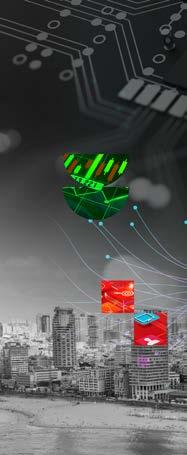
Dr. Yael Inbar (Management) has partnered with Clalit Health Services to explore the opportunities and challenges of assimilating artificial intelligence (AI) tools into radiology clinics. While expected to improve productivity and efficiency as well as reduce overload and burnout, AI may also encounter resistance on the part of medical professionals. In this multidimensional project, both qualitative and quantitative methods are used – such as observations and interviews with radiologists, and operational data analysis – to weigh the benefits of assimilating AI into these clinics.
Even disability policies need to be innovative

In a comparative study of disability policies, Dr. Amos Zehavi (Social Sciences) maintains that disability-related innovation is an essential element for any policy’s long-term success and effectiveness, measured by the disabled’s integration into the workforce and society in general. The study compared Germany, Israel, Sweden, and the US, concluding that, although they all had similar policies, frontrunners Germany and Sweden were not necessarily leaders in disability-related innovation. In this aspect, measured by the number of filed patents per capita, Israel ranks among the world’s top ten.
Diversity – From trying to doing!
Prof. Alexandra Kalev (Social Sciences) and her colleague Prof. Frank Dobbin of Harvard analyze innovations for improving workplace diversity and show what works, what doesn't, and why. In an authoritative, data-driven account, they argue that it is time to focus on changing systems rather than individuals. They show how every employer and employee can succeed using innovations such as targeted recruitment, broad mentoring, work-life supports, skill training and cross-training for everyone, not just the favored few. Their book Getting to Diversity was published by Harvard University Press to broad media attention.
CLOUT 16
The Force behind Israel’s AI Power
Is it a coincidence that all of the Israeli startups on the “AI 100” global ranking (CB Insights) are founded by TAU alumni? “No,” says Prof. Meir Feder (Engineering), Head of TAU’s Center for AI & Data Science. “We’re leading Israel in AI due to three things: we offer a superb, interdisciplinary education; we nurture innovation and entrepreneurship; and we attract the best students from all over the country.”
Prof. Feder and TAU Rector Prof. Mark Shtaif (Exact Sciences) were the supervisors of TAU alumni Omri Geller and Dr. Ronen Dar (pictured), who became research buddies and friends during their studies. In 2018, the pair identified a clear trend. The insatiable need for AI and deep learning computing power was outstripping available resources. They founded Run:ai, which quickly became a market leader in AI infrastructure, won numerous awards, raised $118 million in venture capital – and landed on the “AI 100” list. Other companies on the prestigious ranking, all established by TAU alumni in the Tel Aviv area, are:
• AI21 Labs, which makes natural language processing software and counts TAU alumnus Prof. Amnon Shashua, laureate of the Dan David Prize and Hugo Ramniceanu Prize in Economics, among its founders.


• Pecan AI, which provides predictive analytics software for solving business problems and was co-founded by two TAU PhDs in computational neuroscience, Dr. Noam Brezis and Dr. Zohar Bronfman (who holds a second PhD in the history and philosophy of science and ideas).
• Zencity, which runs a platform for bringing community input and residents’ voices into local government decisionmaking, co-founded by Eyal Feder-Levy, a graduate of TAU’s Adi Lautman Interdisciplinary Program for Outstanding Students, and MBA alumnus Ifo Ivi.
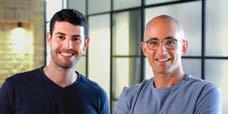
Tel Aviv University Annual Report 2023
17
Computer science bridging socioeconomic gaps
“Basic Steps in Computer Science and Programming” is a MOOC, a free massive open online course, developed by the late Prof. Benny Chor together with Dr. Amir Rubinstein (both of Exact Sciences). The course was developed to help solve the problem of a nationwide shortage of computer science teachers by providing the fundamentals of the subject, as well as programming basics, to youth in Israel’s geographic and socioeconomic periphery. This year the course was used in high school classrooms for over 260 students, and promoted by Net@, a youth organization, to some 60 groups encompassing 900 students from Kiryat Shmona to Eilat.
Nurturing our young musicians
The Buchmann-Mehta School of Music is piloting a Junior Division for Outstanding Young Musicians. Ten high school students from the Thelma Yellin High School of the Arts and additional Israeli high schools are enrolled as performance students at the music school, enabling them to achieve professional artistry and graduate earlier with a BA. This will put young Israeli musicians on an equal footing with those from junior divisions at music schools around the world.
COMMUNITY
18
Prof. (Emer.) Hanna Herzog (Social Sciences) was awarded the Association of Israel Studies 2022 Lifetime Achievement Award for her decades of research and advocacy work to advance women’s rights. “I believe that studying our society is one important way to take an active role in promoting social change for justice and equality,” says Herzog, who also was among the founders of the discipline of Women and Gender Studies at TAU and in Israel.
Herzog helped initiate the Center for the Advancement of Women in the Public Sphere (WIPS) in 2009. It aims to increase gender equality and women’s representation through research, policy initiatives, and social projects. Through WIPS, Herzog’s team created a digital knowledge center in Hebrew, English and Arabic; this hosts the Gender Index which provides a quantified analysis of gender issues across domains and is presented annually at the Committee on Women’s Status in the Knesset. Another groundbreaking project, for which Herzog and WIPS received government grants to conduct policy-applicable research, is a comprehensive analysis of “invisible work” in Israel. “Invisible work” refers to unrecognized labor that is not compensated and is often expected of women in particular, such as childcare, cleaning or scheduling others’ appointments. The project has brought international experts to Israel for collaboration and led to several publications in leading journals.
A Lifetime of Strengthening Israeli Gender Equality
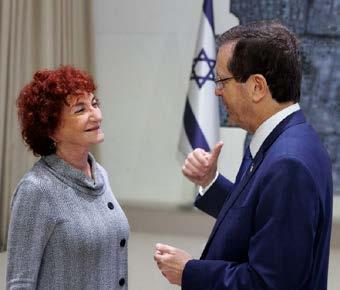
Tel Aviv University Annual Report 2023
Prof. Herzog meets Israeli President Isaac Herzog at the President’s Residence for the 10th annual presentation of the Gender Index in 2022.
19
TAU alumni identifying a need
Clinical social workers and TAU alumnae Mor Cohen and Revital Bakshy Preuss, also a psychoanalyst, teamed up with two other professionals, Shani Nardimon, rehabilitation criminologist and TAU lecturer (Social Sciences), and Dr. Assaf Vaknin, a child/youth psychiatrist, to take action on something missing in their field – a clinic for youth-at-risk suffering from post-trauma, behavioral difficulties, and Multiple Complex Need (MCN). Under the auspices of Topaz International, they established Fort-Da, a clinical center dedicated to the mental health of at-risk 16-26 year olds. The center’s four units offer diagnostics, treatment, a mobile unit, and rehabilitation and employment aid.
Engineering podcasts
The TAU Engineering Alumni Organization, at the initiative of volunteer and electrical engineering alumnus Yuval Kogan, launched a podcast, TAU Tech Talk. The series kicked off with Yuval interviewing TAU alumnus Omer Keilaf, CEO and Cofounder at Innoviz Technologies. The aim is to interview outstanding graduates who will talk about their work and tell the story of their career. While strengthening the alumni community, the podcast will also introduce students and alumni to industry leaders and future career pathways.
Gender equality in the sciences
"ExactShe" provides a support network for female students that encourages their continued careers in exact sciences. The program includes monthly mentoring meetings, career development workshops, help with the transition from BSc to MSc studies and in writing academic texts, as well as lectures by prominent women from academia and industry, all aimed at promoting gender equality in the sciences. The program is supported by the Bruce & Ruth Rappaport Foundation, the Crown Foundation, Google, and Check Point.
COMMUNITY 20
Medical students take to the streets
"Street Medicine – Tel Aviv" is a new student initiative, coordinated by TAU medical student Lee Karelitz Koren and operated jointly with the NGO, Marpe Larehov (“street healing”). Taking seriously their mission to be caring medical practitioners, 25 medical students are extending their care to those experiencing homelessness. They work together with physicians, nurses and social workers, make weekly rounds on Tel Aviv’s streets, organize quarterly treatment days in shelters for the homeless, and collect and process data for research aimed at building programs for rehabilitation and improving public health.
Special opportunities for special needs students
In a hugely successful pilot project, the Sackler Faculty of Medicine opened its labs for one semester to nine Petah Tikva high school students diagnosed with autism spectrum disorder (ASD). The ASD students experienced research and teamwork under the guidance of undergrad and doctoral medical students. Together, they programmed codes for research analyses, grew bacteria, and extracted DNA. The project was organized by PhD candidate Sharone Naor (Medicine). ASD students from Rishon Lezion are next in line to join the project, and other schools are signing up to participate.
Success is the only option!
TAU’s newly rebranded Student Success Center has initiated a range of student retention activities across the campus. Dedicated educational counselors identify any first-year undergraduate student who is falling behind. The student’s difficulties are clarified, followed by tailored interventions and continued monitoring. Seven faculties are currently participating in the program. Under the leadership of Prof. Mark Shtaif, Rector, and Prof. Drorit Neumann, Dean of Students, TAU was among the winners of the Edmond de Rothschild Foundation grant competition for student retention measures.
Tel Aviv University Annual Report 2023
21
CHAIRWOMAN’S GREETINGS
During these challenging times in Israel, it is helpful to consider the country’s remarkable achievements – especially in the light of its 75th anniversary this year. For such a young and tiny nation, Israel’s contribution to the world in the areas of technology, medicine, security, the arts, and humanistic fields is outsized to say the least.
One reason for Israel’s exceptional track record is its investment in research and development. Israel ranks first in the world for expenditure on R&D as a percentage of GDP (2022 Global Innovation Index). But the main reason for Israel’s competitive scientific edge is its outstanding universities, particularly Tel Aviv University – the largest and most influential among them.
Supporting Tel Aviv University translates directly into powering Israeli scientific, economic and social development. It is that simple. This is why we are particularly proud of two record-breaking achievements this year. We successfully completed a ten-year, $1 billion fundraising campaign, the first of its size in Israeli university history; and we topped the $100 million mark for annual cash donations for the first time.
Why are philanthropic gifts so important? Donations are vital to TAU and to Israel because they enable academic expansion into new research and study disciplines, which, in turn, drive progress

world to meet TAU friends and supporters, they share with me their anxieties – about the judicial crisis in Israel, about antisemitism and BDS, and about Jewish heritage preservation in the Diaspora. In all these, TAU is also a central player, and we can be counted upon to help reinforce democratic values and Israel-Diaspora relations.
With warm regards,
Ms. Dafna Meitar-Nechmad Chairwoman, Board of Governors Tel Aviv University

22
PRESIDENT’S MESSAGE

This last year has been a momentous one for the State of Israel, as civil protest has swelled over proposed changes to Israel’s constitutional and judicial foundations. Many of us feel that the struggle is for the democratic soul of Israel. The protests have, of course, affected Tel Aviv University and indeed all of Israel’s universities. Our TAU response has been to take the lead when academic freedom and other democratic values are at stake, as well as to continue our vital role of informing the media and public with diverse viewpoints and objective, evidence-driven information. While the crisis is still unfolding, I hope that our society emerges stronger and more united in the end.
We also have much cause for celebration this year. We are marking 75 years since the founding of Israel, and for 67 of
them TAU has both furthered national priorities and elevated Israel’s global academic standing. The University’s current emphasis on further internationalizing the campus received a major boost with the dedication of the Lowy International School, and our prominent position in the entrepreneurial sphere will be augmented with the new Dan Launchpad for startups. Our continuing commitment to strengthening interdisciplinary research is being advanced by the Sagol Center for Regenerative Medicine and Colton Center for Autoimmunity, and TAU’s centrality in shaping Israeli culture will be enhanced by a new endowment for the Steve Tisch School of Film and Television.
Last but not least, with the completion of our $1 billion Global Campaign, TAU is better positioned than ever to compete for the best faculty and students, and to evolve with rapid technological changes. The outpouring of support we received for the Campaign, and the tremendous generosity of our friends around the world, are an inspiration to the TAU community and we are deeply thankful.
Prof. Ariel Porat President, Tel Aviv University
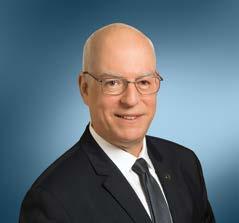
Tel Aviv University Annual Report 2023
23
40 buildings, floors, auditoriums, labs & other physical facilities
Donors from 21 countries
5 schools & departments
10-year rise in research volume: $140 m. /yr. to $255 m./yr.
38 centers & institutes
Big I d e a s M ad e R e a l Thanks a Billion! TAU Global C a mpaign 24
618 new faculty members
127 scholarship funds
10-year rise in doctoral & postdoctoral fellowship funding: $24 m. /yr. to $41.6 m. /yr.
10 Years of Fast-Tracked Growth
In 2023, TAU successfully completed a ten-year, Global Campaign of $1 billion – the largest fundraising campaign of any university in Israel’s history. Our donors’ leadership and generosity propelled the University forward across the spectrum of sciences, humanities and arts. More important still, TAU is newly positioned to pioneer emerging fields and future scientific and social advances.
83 research funds
24 teaching programs
9,865 financial aid scholarships
Tel Aviv University Annual Report 2023
25
TAU OFFICERS
Lay Leaders
Prof. Jacob A. Frenkel, Mr. Robert Goldberg, Mr. Michael H. Steinhardt Chairmen Emeriti of the Board of Governors
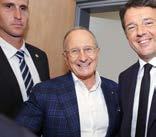
Campus Leaders
Prof. Ariel Porat
President
Prof. Mark Shtaif Rector
Mr. Gady Frank
Director-General
Prof. Milette Shamir
Vice President, International
Prof. Dan Peer
Vice President for Research and Development
Prof. Neta Ziv

Vice President for Equity, Diversity and Community
Mr. Amos Elad

Vice President for Development and Alumni Affairs
Prof. Eyal Zisser
Vice Rector
Prof. Yaron Oz Pro-Rector
Prof. Dan Amiram
Dean of the Coller School of Management
Prof. Rachel Gali Cinamon
Dean of the Lester and Sally Entin Faculty of Humanities
Prof. Yishai Blank
Dean of the Buchmann Faculty of Law
Prof. Noam Eliaz
Dean of the Iby and Aladar Fleischman Faculty of Engineering
Prof. Abdussalam Azem
Dean of the George S. Wise Faculty of Life Sciences
Prof. Itai Sened


Dean of the Gershon H. Gordon Faculty of Social Sciences
Prof. Karen Avraham
Dean of the Sackler Faculty of Medicine
Prof. Eran Neuman
Dean of the Yolanda and David Katz Faculty of the Arts
Prof. Tova Milo
Dean of the Raymond and Beverly Sackler Faculty of Exact Sciences



Prof. Drorit Neumann
Dean of Students
Prof. Liat Kishon-Rabin

Dean of Innovation in Teaching and Learning
 Executive Council
Dr. h.c. Dame Shirley Porter
Deputy Chairperson of the Board of Governors
Dr. h.c. Josef Buchmann
Ms. Dafna MeitarNechmad Chairwoman of the Board of Governors
Dr. h.c. Sylvan Adams Dr. h.c. Marcus Besen Dr. h.c. Boaz Dotan
Dr. h.c. Jeremy Coller
Deputy Chairperson of the Board of Governors
Dr. Anita Friedman
Chair of the TAU Global Campaign, Vice Chairperson of the Board of Governors
Executive Council
Dr. h.c. Dame Shirley Porter
Deputy Chairperson of the Board of Governors
Dr. h.c. Josef Buchmann
Ms. Dafna MeitarNechmad Chairwoman of the Board of Governors
Dr. h.c. Sylvan Adams Dr. h.c. Marcus Besen Dr. h.c. Boaz Dotan
Dr. h.c. Jeremy Coller
Deputy Chairperson of the Board of Governors
Dr. Anita Friedman
Chair of the TAU Global Campaign, Vice Chairperson of the Board of Governors
26
Vice Chairmen of the Board of Governors
DISTINCTIONS
Prof. Domenico Agostini, Humanities, Friedrich Wilhelm Bessel Research Award
Prof. Gadi Algazi, Humanities, Emil Grunzweig Human Rights Award for Lifetime Achievement, Association for Civil Rights in Israel
Prof. Noga Alon, Exact Sciences, Knuth Prize, ACM SIGACT and IEEE Computer Society; Shaw Prize in Mathematical Sciences
Dr. Adi Ashkenazi, Exact Sciences, IUPAP Early Career Scientist Award; Guido Altarelli Award
Pro. Karen Avraham, Medicine, FISEB STAR Award for Scientific Excellence and Leadership
Prof. Amir Beck , Exact Sciences, Farkas Prize, Optimization Society
Dr. Uri Ben-David, Medicine, Krill Prize, Wolf Foundation for Excellence in Scientific Research; 2023 Kadar Family Award for Outstanding Research
Dr. Moshe Ben Shalom, Exact Sciences, 2022 Nathan Rosen Experimental Physics Prize, Israeli Physics Society
Dr. Adva Berkovich Romano, Social Sciences, Tamar Award, El Halev Association
Dr. Gili Bisker, Engineering, Krill Prize
Dr. Ella Daniel, Humanities, 2023 Kadar Family Award for Outstanding Research
Prof. Yoram Dinstein, Law, 2023 Israel Prize for Legal Research
Prof. Ora Entin-Wohlman, Exact Sciences, Member of Israel Academy of Sciences and Humanities; Honorary Fellow of the Institute of Physics, UK
Prof. Michal Feldman, Exact Sciences, Bruno Award
Prof. Avital Gasith, Life Sciences, 2023 Israel Prize for the Environment
Prof. Ehud Gazit, Life Sciences, Associate National Academy of Inventors of the USA
Prof. Ron Harris, Law, Honorary Fellow of the American Society for Legal History; 2023 Kadar Family Award for Outstanding Research
Dr. Liora Hendelman-Baavur, Humanities, Latifeh Yarshater Book Award, Association for Iranian Studies (USA and Canada)
Prof. Tamar Herzig, Humanities, Best Article Award, Society for the Study of Early Modern Women
Prof. Hanna Herzog, Social Sciences, 2022 Life Achievement Award, International Association of Israel Studies
Prof. Marek Karliner, Exact Sciences, 2023 Kadar Family Award for Outstanding Research
Dr. Lia Levin, Social Sciences, 2022 Outstanding Teacher Award, SPA – Social Policy Association
Prof. Yishay Mansour, Exact Sciences, Fellow of the Asia-Pacific Intelligence Association (AAIA)
Prof. Tova Milo, Exact Sciences, Honorary Doctorate of ETH Zurich
Prof. Adam Morrison, Exact Sciences, 2022 Strage-BGU Cyber Award for Excellence in Cyber Research
Prof. Carlos E. Nemcovsky, Medicine, 2023 IADR/ PRG Award in Regenerative Periodontal Medicine, International Association of Dental Research
Prof. Dan Peer, Life Sciences, Member of the US National Academy of Engineering
Prof. Emanuel Peled, Exact Sciences, 2023 Israel Prize for Chemistry; 2022 Medal of Excellence, International Battery Association
Prof. Colin Price, Exact Sciences, Honorary Degree of Doctor of Science, Karunya Institute of Technology and Sciences (KITS), India
Prof. Wojciech Samotij, Exact Sciences, Anna and Lajos Erdős Prize in Mathematics
Dr. Adi Shany, Management, Best Article for EarlyStage Researcher, Competition and Regulation European Summer School and Conference (CRESSE)
Dr. Michal Shapira, Humanities, Best Article Award, Society for the History of Psychology
Prof. Yosef Shiloh, Medicine, US National Academy of Sciences
Prof. Yoel Shkolnisky, Exact Sciences, Abarbanel Prize in Applied Mathematics
Prof. Yinon Spinka, Exact Sciences, Wolfgang Doeblin Prize, Bernoulli Society for Mathematical Statistics and Probability
Prof. Sivan Toledo, Exact Sciences, 2023 SIAM Fellow
Tel Aviv University Annual Report 2023 27
2023 GLOBAL CAMPAIGN PROJECTS
Academic Development
• Irving and Joyce Abramowitz Family Chair in Business Policy and Ethics – Marc & Anita Abramowitz, USA
• Allon Entrepreneurship Program – Dr. Ori Allon, USA
• Support for the Center for Artificial Intelligence & Data Science – Blavatnik Family Foundation, USA
• Renewal of campus-wide Blavatnik Initiative – USA
• Bloomberg-Sagol Center for City Leadership – Bloomberg Foundation, USA
• Institute for Integrative Psychedelics Research Founded by Jeremy Coller, David B. Katzin, MD-PhD, and Dr. Dmitry Repin – Jeremy Coller, UK
• Colton Center for Autoimmunity – Stewart and Judith Colton, USA
• Faculty Recruitment Fund in STEM Research – The Crown Family, USA
• Support for the Irwin Cotler Institute – Richard Dubrovsky, Canada
• Eileen and Louis Dubrovsky Research Fund for Solid Cancers at the Cancer Biology Research Center – Richard Dubrovsky, Canada
• Endowed American Studies Program – Anonymous gift to the Jewish Community Federation and Endowment Fund, USA
• Support for the Sackler Faculty of Medicine – Eugenia Gelman Estate, USA
• Diane and Guilford Glazer Foundation Faculty Excellence Initiative – USA
• Support for the Institute for National Security Studies –Michael D. Granoff, USA
• Harel Center for Capital Markets Research – Harel Insurance Ltd., Israel
• Harel Institute for Actuarial Innovation – Harel Insurance Ltd., Israel
• Dan Launchpad – Dan Holzmann, Switzerland
• Support for the Center for Nanoscience and Nanotechnology – Intel Israel Ltd., Israel
• Support for SPARK TEL AVIV – KI Research Institute, Israel
• Institute for Integrative Psychedelics Research Founded by Jeremy Coller, David B. Katzin, MD-PhD, and Dr. Dmitry Repin – David B. Katzin, MD-PhD, USA
• Institute for Integrative Psychedelics Research Founded by Jeremy Coller, David B. Katzin, MD-PhD, and Dr. Dmitry Repin – Improbability Foundation, Switzerland
• Lowy International School and Building in Memory of Shirley Lowy – Frank Lowy, Israel
• Training Program for Palestinian Physicians in Genetic Diseases – Mauerberger Fund, South Africa
• Support for the Neubauer Doctoral Fellows Program –Neubauer Family Foundation, USA
• Support for the Institute for National Security Studies –Leonid Nevzlin and Nadav Foundation, Israel
• Support for the Stephen Harper Chair in Global Finance –Power Corporation of Canada
• Support for the Prajs-Drimmer Institute for the Development of Anti-Degenerative Drugs – Sruel Prajs and Norma Drimmer, Germany
• Support for the International MSc in Plant Sciences with emphasis on food security – Dr. Alex Rath in honor of his late wife, Kathleen Freedman Rath, Israel
• David and Julia Roitman Fund – Germany
• Support for the Edmond J. Safra Center for Ethics –Edmond J. Safra Philanthropic Foundation, Liechtenstein
• Vicky and Joseph Safra Institute for Banking and Financial Intermediation – Joseph Safra Foundation, Brazil
• Bloomberg-Sagol Center for City Leadership – Sagol Family, Israel
• Initiative for Responsible AI in Medicine – Samueli Foundation, USA
28
• Expansion of Integrative Medicine Curriculum – Samueli Foundation, USA
• Support for the Institute for National Security Studies –Goldman Sonnenfeldt Foundation, USA
• Endowment Fund for Steve Tisch School of Film and Television – Steven E. Tisch, USA
• Support for the Moshe Mirilashvili Institute for Applied Water Studies – Watergen Ltd., Israel
Research
• Support for the Glioblastoma Research of Dr. Lior Mayo –Haim Chera, USA
• Support for the Corpus Inscriptonium Judea/Palastinae Research Project – Dan David Foundation, Israel
• Fooksman Research Fund in Sustainable Development –Fooksman Family Foundation, USA
• Integrated Research Program (Prof. Meir Feder) – Google, Ireland
• Kahn Research Fund for Glioblastoma Treatment (Prof. Ronit Satchi-Fainaro) – Kahn Family Foundation, Israel
• Support for Research of Prof. Jonathan Price – Leon Levy Foundation, USA
• Support for Alzheimer’s Research of Prof. Illana Gozes –Holly Strelzik, USA
• Support for Research of Prof. Ehud Gazit – Wolfson Family Charitable Trust, UK
Campus Development
• Dr. Ivan Berger and Syril D. Berger Digital Dentistry Classroom and X-ray Room – USA
• Support for the Rosalie and Harold Rae Brown Core Cancer Research Facility – Rosalie and Harold Rae Brown Charitable Foundation, USA
• Coller Terrace – Jeremy Coller, UK
• Renovation of the Dan David Building – Dan David Foundation, Israel
• Peter Kraus, M.D., Nanomedicine Floor – USA
• Sally and Benyamin Nemenyi Auditorium – UK
• Vicky and Joseph Safra Lobby and Entrance Plaza – Joseph Safra Foundation, Brazil
• Nathan Sivin Library of the History of Science, Medicine, and Religion in China (at the Sourasky Central Library) –Nathan Sivin Estate, USA
Student Aid and Fellowships
• The Human Embrace: Cohn Program for Israeli-Arab Inclusion in the Humanities – Daniel Cohn, USA
• Prize for Student Entrepreneurship in Computer Science –Dr. Dorit Dor and Mr. Tomer Dor, Israel
• Scholarships in the Coller School of Management in memory of Norman Lipsett – Bob and Trudy Gottesman, USA
• Rose Sigal Ibsen Scholarship Fund – Rose Sigal Ibsen Estate, USA
• Naomi Prawer Kadar MD-PhD Fellowship Fund – Naomi Prawer Kadar Foundation, USA
• Scholarship Fund – Anonymous
• Scholarship Fund – Pa’amei Tikva, Israel
• Daniel Howard International Sports Scholarship – Porter Foundation, UK
• Support for Scholarships – Steven and Henryk Schwarz, Schwarz Foundation, USA
• David Gombin Film Production Fund – Meir Shamir, Israel
• Scholarships for Needy Students – Maya Silberbach Estate, Israel Community
• Support for Summer Youth University – Matanel Foundation, Panama
Listed: Projects of $100,000 and above, by alphabetical order within categories
Tel Aviv University Annual Report 2023 29
INTERNATIONAL CONNECTIONS
Arts abroad
The Buchmann-Mehta School of Music and TAU’s Theater Arts Department will be making music and gracing stages from here to Austria. Collaboration with the University of Music and Performing Arts Vienna includes student and faculty exchange, beginning with a workshop in theater directing at TAU and a festive showcase performance. This is anticipated to be the start of many such cooperative events, with further agreements being finalized with the Music and Arts University of the City of Vienna, and the University of Music and Performing Arts Graz.
Children’s bias in the context of conflict
At an international conference in Budapest, Hungary, MA student Sondos Abofoul, supervised by Dr. Maytal Horking Nassie (Education), presented her thesis on whether ArabIsraeli children are biased regarding preferred purveyors of information. Looking at whose information was trusted, she found a clear tendency among the younger Arab children to prefer an Arab child’s information, rather than a Jewish or neutral child’s. The study adds to an understanding of intergroup biases in the context of conflict, with important implications for how to transmit information to children about different groups.
TAU gets a global boost
A major gift from longtime University friend Sir Frank Lowy will enable TAU’s International School, newly dubbed THE LOWY INTERNATIONAL SCHOOL Dedicated to the Memory of Shirley Lowy, to greatly expand its academic offerings and global reach. The funding will support a certified-green building, scholarships for outstanding international students, guest professors, and new pro-social curricula. The school also expects to double the number of spots for foreign students on campus to around 4,000. Nearing its 50th year, the School offers some 40 degree, short-term and online programs to students from over 100 countries.
30
The New Generation’s Global Citizenship


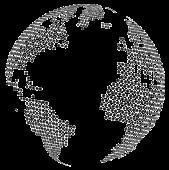
An elusive goal of the United Nation’s cultural and educational body, UNESCO, has been global citizenship education, or training on rights and responsibilities as a member of the global community. Now, Prof. Miri Yemini (Humanities), pictured, of the Jaime and Joan Constantiner School of Education, is heading a new European Research Council-funded project to learn about young people’s social responsibility and involve them in the creation of more effective global citizenship curricula. The interdisciplinary, international research team will work with youth in six different countries to collect quantitative and qualitative data on their views and involvement in four activist movements: body positivity, climate change, human rights, and #metoo.
The study’s findings will be brought to stakeholders including NGOs, national governments, and educators to develop policies and curricula that may better shape a socially responsible, globally aware next generation. A free online course and an engagement program for the Global South are also planned.

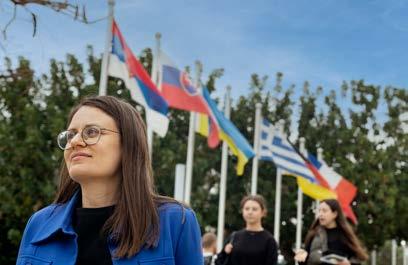
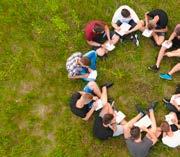

Tel Aviv University Annual Report 2023
31
The Steve Tisch School of Film and Television marked its 50th anniversary with a year-long marathon of festivals and events spotlighting its role as a pioneer film school and pillar of Israeli cinematic arts. The celebrations culminated in a tribute to the school held in New York City by the International Emmy Awards.
Ranked by Wrap Magazine among the top 21 International Film Schools globally, the School kicked off its birthday year at the Tribeca Film Festival with the world premiere of Karaoke by alumnus writer and director Moshe Rosenthal. The 2022 Tel Aviv International Student Film Festival dedicated a full day to the School’s achievements. Screenings of documentary, short, and feature films by Tisch students and alumni took place worldwide in Italy, the UK, Brazil, Mexico, Germany, Australia, and Estonia. In addition, the 36th Israel Film Festival in Los Angeles honored the Tisch School with the 2022 IFF Visionary Award for “establishing Israeli cinema and television at the forefront of entertainment around the world.”
This year was also marked by a new major endowment for the school, ensuring its continued excellence.
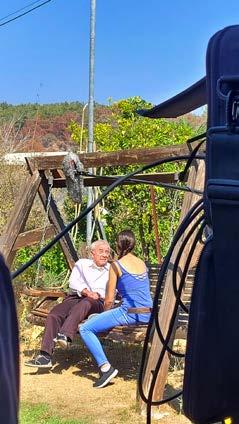
Celebrating 50 Years of Shaping Israeli Film


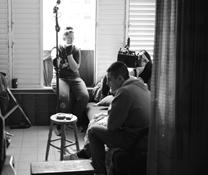
INTERNATIONAL
32
CONNECTIONS
It’s all Chinese to me
Ongoing collaboration between Dr. Anat Cohen’s (Education) Advanced Learning Research Lab and Prof. Yao-Ting Sung of National Taiwan Normal University (NTNU) has blossomed into a partnership between TAU and NTNU. Using techniques developed in Cohen’s and Yao-Ting’s labs, a first-of-its-kind, advanced technology-based training program is being offered to Chinese language teachers. A memorandum of understanding is about to be signed between the universities aimed at promoting fields of mutual interest including education and language training.
Improving on the world’s most advanced equipment
Conducting research at CERN's LHC-ATLAS, the world’s largest particle detector, former Scheinberg Family Fellow Dr. Liron Barak (Exact Sciences) is collaborating in the search for a new particle that decays into two photons, expanding our knowledge of physics. The work was published in the Journal of High Energy Physics. Dr. Barak’s team also successfully introduced a sophisticated machine-learning technique into the ATLAS online system. This was a first and will allow the system to identify particles in a nanosecond time scale.
Doing battle with blood cancers
Prof. Yuval Ebenstein (Exact Sciences), whose expertise is in DNA technologies and light-matter synergy, has received a €8.5 million EU Horizon grant to support the development of a new blood test for diagnosing hematological malignancies. He will be working with the Sanguine Consortium, an international body coordinated by Tel Aviv University that includes participants from Belgium, the Czech Republic, Germany, Greece, Lithuania and Spain. According to the EU Cancer Mission that is funding the project, the consortium’s work will promote their aim of significantly reducing cancer cases throughout the EU by 2030.
Recreating the earliest version of the Bible
As part of an international collaboration, Prof. Jonathan Ben Dov and Dr. Guy Darshan (both of Humanities) are producing a new critical edition of the Hebrew Bible. In antiquity, multiple editions were circulating of many books of the Hebrew Bible. By taking recoverable texts approximating the archetype of each ancient edition, the HBCE (Hebrew Bible Critical Edition) aims to represent the earliest forms of the Old Testament. In several cases, it will consist of two or more parallel columns aligned to indicate textual differences between the ancient editions. This innovative project includes eminent scholars form North America, Europe, Africa, and Israel.
Tel Aviv University Annual Report 2023
33
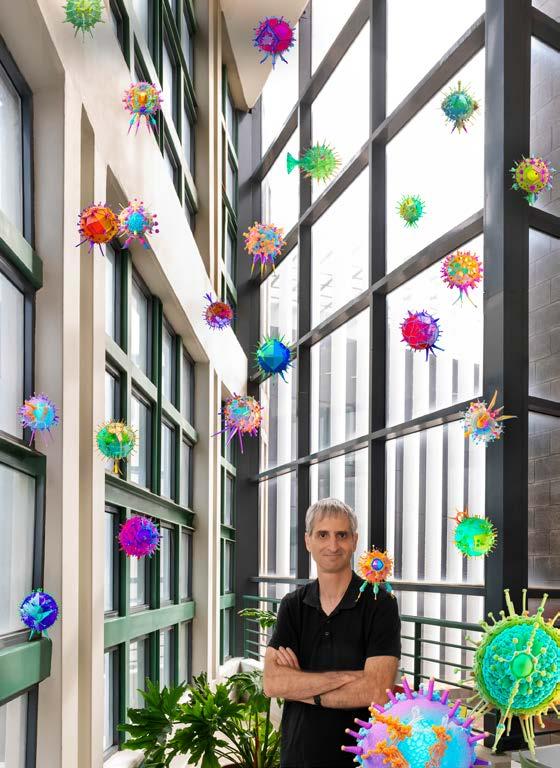
INTERNATIONAL CONNECTIONS 34
How religion and environment interact
Prof. Meir Shahar (Humanities) has been awarded the ISF Breakthrough Research Grant for his project, “Environment and Religion in China.” The 5-year project will combine historical research with ethnographic fieldwork in rural Chinese villages. It will explore responses to natural calamities, examine myths and cults of village gods, and contribute to a comparative study of cultural responses to the environment. The end result will be the documentation of a religious world that is fast disappearing.
Discovering 100,000 New Viruses
And you thought you had enough of viruses lately? Prof. Uri Gophna (Life Sciences) and his doctoral student, Uri Neri, both of TAU’s Shmunis School of Biomedicine and Cancer Research and Edmond J. Safra Center for Bioinformatics, discovered about 100,000 new types of RNA viruses – a five-fold increase in the amount of such bugs known to science until now.
Gophna (pictured) and Neri developed a computational tool that helped identify the viruses in global environmental data collected from soil samples, oceans, lakes, and a variety of other ecosystems. The newly revealed viruses are not harmful to humans but may affect bacteria, plants, and small animals. The researchers believe that the discovery may help in the development of anti-microbial drugs and in new methods to protect against agriculturally harmful fungi and parasites.
The research was conducted in collaboration with the US research bodies NIH and JGI, as well as the Pasteur Institute in France. The study was published in the journal, Cell
The Iranian woman between two revolutions
Fundamental shifts experienced by women in Iran during the 1960s and 70s, from the sweeping reforms of the Shah (1963) to the edicts of the Islamic Revolution (1979), are the subject of Persian Heritage Foundation award-winning book Creating the Modern Iranian Woman: Popular Culture between Two Revolutions by Dr. Liora Hendelman-Baavur (Humanities), Head of the Alliance Center for Iranian Studies. She found that women’s magazines of the time, despite their critics, proved to be of great historical value, and that Iranian women and the media share a history of oppression, still on the agenda of social activists today.
Tel Aviv University Annual Report 2023
35
A first in brain data-sharing
Prof. Yaniv Assaf (Life Sciences) of the Sagol School of Neuroscience studies neuroplasticity, or how the brain reshapes itself in response to cognitive experience. He recently received a European Research Council grant to study what happens in the brain during skill learning. Together with Prof. Tom Schonberg (Life Sciences), also of the Sagol School and an ERC grant recipient, Assaf established the Strauss Neuroplasticity Brain Bank, Israel’s first open-source brain MRI database, which will help elucidate new early signs of disease, explore how wellbeing is reflected in the dynamics of brain function and structure, and promote neuroimaging data exchange between researchers.
Business education here and abroad
Two new programs in English have been launched at the newly inaugurated Lowy International School and Coller School of Management:
Prof. Shai Danziger (Management) heads the “Experience Different” International BA in Management and Liberal Arts, focusing on venture, innovation, and entrepreneurship. Students in this 3-year program receive exchange opportunities at top business schools worldwide and career mentoring services.
Dr. Shai Harel (Management) heads the new Online MBA, the first such program to be offered in Israel, featuring a technology-oriented multidisciplinary approach to business education. It can be completed in 2.5 years and offers international students an optional brief campus residency to acquaint them with Israel’s entrepreneurial ecosystem.
Saving the coral wonderland
New faculty recruit Dr. Tom Shlesinger (Life Sciences), a TAU alumnus and staff member of TAU’s Steinhardt Museum of Natural History, is a wildlife photographer and marine ecologist focused on coral reef ecosystems. In his latest research together with Prof. Robert van Woesik from Florida Tech, he explored differences in coral-bleaching responses to marine heatwaves by analyzing the largest database of coral-bleaching compiled to date, include 23,288 surveys at 11,058 sites in 88 countries. The study highlighted the critical influence of historic circumstances and local oceanographic conditions on coralbleaching response and resulted in the scientists’ creation of fine-scale predictive maps of bleaching probabilities.
Digital mountains of ancient Jewish manuscripts – at your fingertips!
Prof. Nachum Dershowitz (Exact Sciences) has received a €10.3 million European Research Council grant to turn a large proportion of the 100,000 already digitized rare and valuable Jewish-language medieval manuscripts into accessible content via the internet. Over the next six years, he and his coworkers aim to convert these writings into searchable text. The work will require algorithms for handwriting recognition and analysis of origin and date, as well as for analyzing linguistic features to help place texts in their historical context and find intertextual relations between them. The resulting data and algorithms of this project, on a hitherto unimaginable scale, will be made freely available to the entire world for study.
First to the International Space Station
Dr. Yasmine Meroz (Life Sciences), together with contemporary artist Liat Segal, has combined science and art to create “Impossible Object,” a research-driven artwork in which micro-gravity physics is the medium. This water-based kinetic sculpture can only exist in outer space’s zero gravity. Launched into space as a collaborative effort between Israel’s Rakia Mission and the SpaceX shuttle, and in cooperation with NASA, this was the first artwork to arrive at the International Space Station, where it was activated by Israeli astronaut and TAU Governor, Eytan Stibbe.
INTERNATIONAL CONNECTIONS 36
Concept and production: Rava Eleasari • Text: hi-Text/Mimi Tanaman • Additional texts: Sveta Raskin, Ruth Fertig, Ruti Ziv
Graphic Design: Issi Dvir • Photography: Yoram Reshef
• Additional Photography: Moshe Bedarshi, Rafael David Ben-Moshe, Ella Barak
Administrative Coordination: David Jozsef • Printing: Shavit • Issued by the Development and Public Affairs Division • Tel Aviv University
Ramat Aviv 69978, Tel Aviv, Israel • www.campaign.tau.ac.il
TEL AVIV UNIVERSITY
LAY LEADERSHIP WORLDWIDE
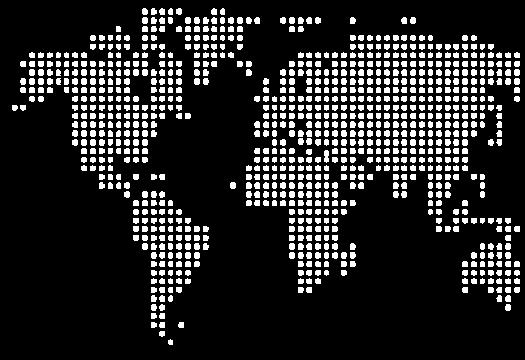
ARGENTINA
Polly Mizrahi de Deutsch, President
Argentinean Friends of Tel Aviv University
AUSTRALIA
Clive Donner, President
Australian Friends of Tel Aviv University (WA)
Rosie Potaznik, President
Australian Friends of Tel Aviv University (Victoria)
Jenny Hillman, President
Australian Friends of Tel Aviv University (New South Wales)
AUSTRIA
Dr. Bernhard Ramsauer, President
Austrian Friends of Tel Aviv University
BRAZIL
David Ades, President
Brazilian Friends of Tel Aviv University
Renée Cohen Zaide
Brazilian Friends of Tel Aviv University Rio de Janeiro
Dr. Mario Gurvitz Cardoni
Brazilian Friends of Tel Aviv University
Porto Alegre
CANADA
Ariela Cotler, National President
Tel Aviv University Canada
David Altshuller, Regional Chair
Ontario and Western Canada
Josh Cummings, Regional Chair
Ottawa, Quebec and Atlantic Canada
ECUADOR
Ketty Grun, Liaison
Ecuadorian Friends of Tel Aviv University
FRANCE
Prof. François Heilbronn, President
French Friends of Tel Aviv University (AFAUTA)
GERMANY
Uwe Becker, President
German Friends of Tel Aviv University
HONG KONG
Sharon Ser, Chairperson
Hong Kong Friends of Tel Aviv University
INDIA
Aaron Solomon, President
Indian Friends of Tel Aviv University
ISRAEL
Amnon Dick, Chairman
Israeli Friends of Tel Aviv University
MEXICO
Jaime Murow Troice, President
Mexican Friends of Tel Aviv University
NETHERLANDS
Dutch Friends of Tel Aviv University
NORWAY
Jan Dante, Chairman
Norwegian Friends of Tel Aviv University
PANAMA
Millie Bettsak, President
Panamanian Friends of Tel Aviv University
PERU
Roberto Lerner, Liaison
Peruvian Friends of Tel Aviv University
PORTUGAL
Lucienne Kampel, President
Portuguese Friends of Tel Aviv University
SOUTH AFRICA
Jonathan Osrin, Chairman
South African Friends of Tel Aviv University
SPAIN
Patricia Nahmad, President
Isaac Querub, Honorary President
Spanish Friends of Tel Aviv University
SWEDEN
Peter Seideman, President
Swedish Friends of Tel Aviv University
SWITZERLAND
Patrick Loeb-Meyer, President
Swiss Friends of Tel Aviv University
UK
David Meller CBE, Chairman
Tel Aviv University Trust
Glen Watson, Chairman, Scottish Group Tel Aviv University Trust
URUGUAY
Bettina Szames, President
Uruguayan Friends of Tel Aviv University
USA
Dr. Garry Rayant, National Chairman
American Friends of Tel Aviv University






























































 Executive Council
Dr. h.c. Dame Shirley Porter
Deputy Chairperson of the Board of Governors
Dr. h.c. Josef Buchmann
Ms. Dafna MeitarNechmad Chairwoman of the Board of Governors
Dr. h.c. Sylvan Adams Dr. h.c. Marcus Besen Dr. h.c. Boaz Dotan
Dr. h.c. Jeremy Coller
Deputy Chairperson of the Board of Governors
Dr. Anita Friedman
Chair of the TAU Global Campaign, Vice Chairperson of the Board of Governors
Executive Council
Dr. h.c. Dame Shirley Porter
Deputy Chairperson of the Board of Governors
Dr. h.c. Josef Buchmann
Ms. Dafna MeitarNechmad Chairwoman of the Board of Governors
Dr. h.c. Sylvan Adams Dr. h.c. Marcus Besen Dr. h.c. Boaz Dotan
Dr. h.c. Jeremy Coller
Deputy Chairperson of the Board of Governors
Dr. Anita Friedman
Chair of the TAU Global Campaign, Vice Chairperson of the Board of Governors












